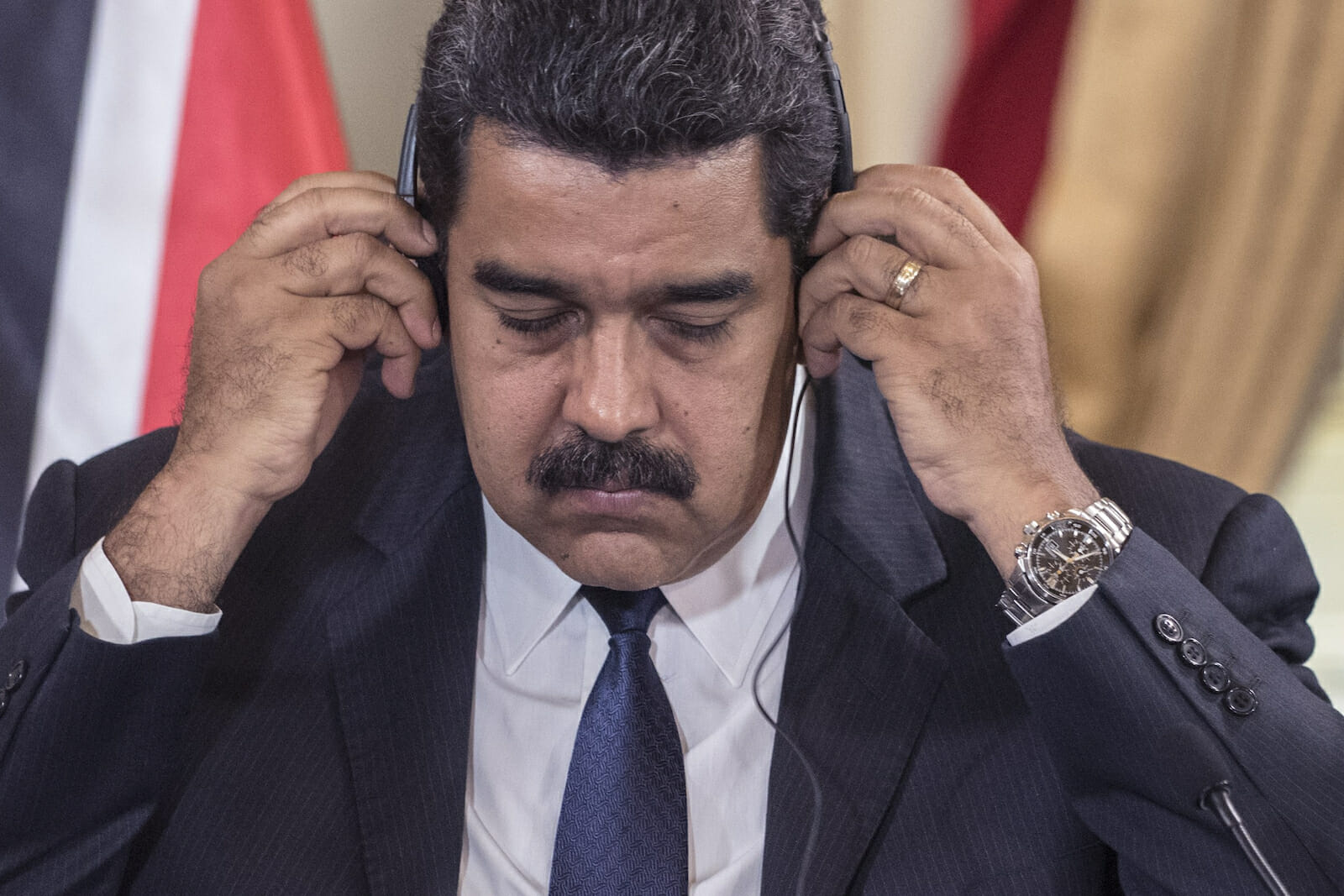
The Blame Game will Not Work for Venezuela’s Nicolás Maduro
Over the past two weeks, President Nicolás Maduro’s government has blamed two major incidents on acts of sabotage by opponents. This is not the first time the government’s incompetence and failed policies have been blamed on unnamed villains. Maduro’s mentor, Chávez, utilized the strategy frequently to answer for his failed policies and their repercussions. Because Maduro has chosen to continue on the same road, there is a very good chance the opposition will win the election in six years. The two alleged situations of sabotage both involve Venezuela’s deteriorating energy infrastructure. The power outage that affected 70% of the country last week and the deadly oil refinery fire last August were not the result of sabotage but of the government’s own mismanagement.
It is the contradictions of the policies created by Chávez that led to these two incidents and most of the problems currently facing the country. The goal of using the nation’s oil wealth to improve the standard of living for the poor was and is noble. Unfortunately, the unwise way in which this was done meant that crucial investments were overlooked for years. Instead of lavish spending on free housing and appliances such as flat-screen televisions during election time, this money should have been spent on maintaining the country’s power grid and other infrastructure projects.
Economic policies that were designed to make daily purchases more affordable and limit inflation have backfired compounding problems for Maduro. Price controls for consumer goods have meant that small businesses often have to decide between selling goods at a loss or not providing them at all.
Another initiative, creating a fixed exchange rate of the national currency to the US dollar, did not achieve the goal of curbing inflation for the cost of imports. It actually led to inflation as most importers had to rely on very unfavorable black market exchange rates instead of the limited number of dollars sold by the government at the fixed rate.
Another major contradiction on display since the Chávez experiment began in the late 1990’s is that he denounced the political elite that controlled the country and replaced it with a new elite comprised of political allies, friends and family who occupied positions of power. The murder rate, foreign investment, the respect for civil liberties such as property rights and freedom of speech have also seen negative trends under Chavismo (the term for the Socialist movement started by Chávez).
Some policies, however, have had concrete positive effects: the raising of the minimum wage decreased poverty levels, spending on education has led to higher literacy rates as well as a doubling in the number of students attending college, and millions more people now have access to healthcare than before. It is unfortunate that these gains have been achieved at the expense of many other important indicators.
Since taking office, Maduro has not done much to differentiate himself from Chávez. This is not surprising given his election slogan of “Chávez sets the route, Maduro takes the wheel.” Some initiatives have been undertaken to decrease violent crime and improve relations with neighboring Colombia but it is too early to tell what the results will be. Maduro announced this week the possibility of increasing the availability of dollars that can be bought at the lower fixed exchange rate. This is not a long-term solution to inflation but could help bring down import costs in the near term.
Depending on whom you ask in Venezuela, you will get different opinions about whether Chavismo’s successes have outweighed the failures. If one looks at presidential election results since 2006, it would seem that support for Chavismo has been steadily declining. In his last election campaign before passing away Chávez’s 55% was his narrowest margin of victory ever. The elections in April saw Maduro receive only 50%, barely beating the 49% earned by the opposition leader Henrique Capriles. If this trend continues, the chances of Maduro beating the opposition in the next presidential elections are not good.
There are three reasons underlying the decreasing popularity of Chavismo. The first is Maduro himself. Despite his best efforts, he has been unable to equal the level of support Chávez had. Opinion polls in Venezuela last month show declining numbers in his popularity even with the Chávez faithful. Second is the growing strength of the opposition under Henrique Capriles. Since he was chosen to represent the opposition against Chávez in 2012 he has brought together a wide base including previous Chávez supporters with his promise to combine business-friendly policies and the funding of social programs. The third reason Maduro might be the last Chavismo president for a while is that the country’s problems have been getting worse. Maduro has not shown enough commitment to changing policies that have led to the country’s problems. The incidents related to neglected infrastructure are not slowing down, and neither are inflation and product shortages.
Ironically, even if Maduro were to make meaningful changes such as putting an end to cronyism and ending the overspending on social initiatives, it would probably hurt him. He would lose support from many on the left and would probably not gain opposition support to make up for it. Ultimately, only the opposition will most likely be able to undertake the big changes that are necessary. Henrique Capriles is still fighting election results from April. The results will not be overturned at this point; he should instead go back to the business of being Governor and show why he would make a better president than Maduro.
